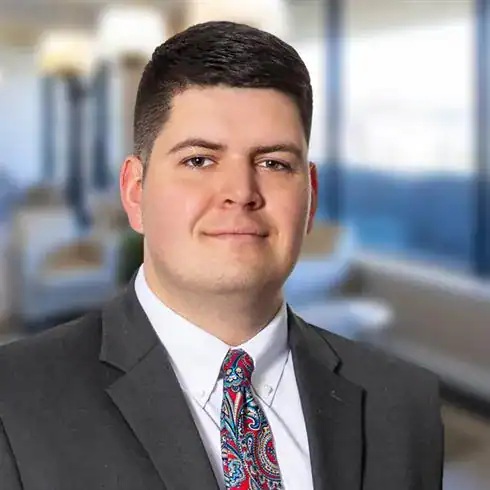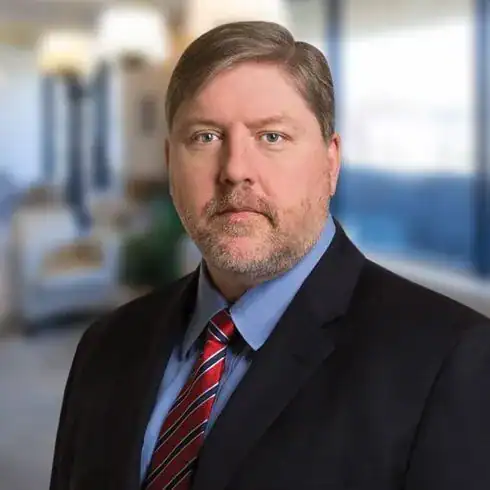100% Free Consultations
NO FEES UNTIL WE WIN
100% Free Consultations
NO FEES UNTIL WE WIN
Chapter 13 Bankruptcy is right for you if you have enough income to continue making your payments, but have gotten behind and need a chance to catch up. This chapter allows you to reorganize your financial life. You can pay your past-due debts over a three- to five-year period. If you comply with the terms of your repayment plan, remaining debts may be discharged.
Caddell Reynolds Law Firm has been serving the people of Arkansas for over 25 years. Our Arkansas Chapter 13 Bankruptcy attorneys are dedicated to helping people find solutions to their problems and gain a fresh start in life.
Everyone wants to be free of overwhelming debt. We have offices across Arkansas and serve those throughout the state including Jonesboro, Fort Smith, Fayetteville, and Rogers. Contact us at one of our offices near you for a consultation.
Do your debts have you trapped in a hopeless inability to pay your way? Are you behind on your mortgage or vehicle payments? Does your current income prevent you from filing a Chapter 7?
Chapter 13 can provide the ability for individuals to separate debt. Bills that must be paid to maintain a property, a family home, or even to retain a vehicle, can be separated in a Chapter 13 Bankruptcy action. Caddell Reynolds Law Firm has a proven record of helping individuals maneuver through all the required legal procedures to accomplish an effective reorganization of your debts.
Chapter 13 Bankruptcy is a common choice in Bankruptcy that avoids the liquidation of property. In most cases, a Chapter 13 allows consumers/debtors to retain all of their property by filing a good faith plan of reorganization. Unlike Chapter 7, Chapter 13 allows individuals to accomplish their financial goals within a period of 3 to 5 years.
The Chapter 13 plan takes into account an individual’s income to determine what debt has to be repaid and what debt does not. This means that the debtor, in good faith, proposes a plan with the intention of completing such plan within that 3 to 5 year period. In many cases, unsecured creditors, such as credit card debt, medical debt, and other types of debt obligations need not be paid.
A Chapter 13 trustee is assigned to the case. They will review the proposed payment plan of the debtor to make sure he or she is paying what must be paid under the Bankruptcy Code.
The plan allows for all debts that must be paid, to be consolidated into one payment that the Chapter 13 trustee will pay for you except for a current mortgage payment. Once the Chapter 13 plan is completed, remaining debts that cannot or need not be paid are forever discharged and not allowed to be pursued by creditors or collectors.
Contact Caddell Reynolds Law Firm for a free consultation to see if you qualify for a Chapter 13 repayment plan so that we can help you through your financial hardships. Our goal is to help you retain your home, vehicle, and other property.
Many people turn to Bankruptcy when they have been sued by a creditor or debt collector. At Caddell Reynolds Law Firm, we will evaluate whether a Bankruptcy filing is right for you. Many times these collection suits can be successfully defended using state rules of court that require the creditor or collector to prove their case under the Rules of Evidence, which many times they cannot.
Your case will be evaluated with respect to federal consumer protection laws such as the Fair Debt Collection Practices Act. Using these methods of defense, individuals may avoid a Bankruptcy filing appearing on their credit report. Additionally, it can help you avoid losing existing relationships with creditors that you have a good relationship, and avoid the loss of credit for years after your Bankruptcy is finished. Caddell Reynolds Law Firm offers a free consultation to evaluate these and other alternatives to Bankruptcy filings.
Many homeowners are facing foreclosure. What you may not understand is that various mortgage companies and servicers have inadequate accounting software. This leaves them unable to adequately correct misapplications of payments. In fact, mortgage servicers can actually make more money by keeping a mortgagor in a state of default.
Caddell Reynolds Law Firm has a proven record of standing up to mortgage companies, banks, and servicers’. We will zealously fight to save your home and property. We offer a free consultation to evaluate the facts to determine how best we can represent you. Our firm has dedicated a large part of its practice to foreclosure defense work.
Since the economic crash of 2007, homeowners across the State of Arkansas and the country have sought mortgage modifications from their mortgage companies or servicers to help bring their defaulted mortgages current. After months or years of “working” with a mortgage company or servicer to modify your mortgage, you may find yourself being denied a modification. You may also find yourself even further behind on your mortgage than before you started the modification process.
What many home and property owners do not realize is that there are federal laws and regulations in place to protect them from the circumstances they are facing. Caddell Reynolds Law Firm offers a free consultation to evaluate the facts of your case. We will determine what can be done to force a modification to which you may be entitled under federal law or regulation.
People find themselves further behind after months or years of being trapped in the modification process. Consumer laws have been enacted that can protect you and prevent the loss of your home or other property.
AT CADDELL REYNOLDS LAW FIRM, WE OFFER A FREE CONSULTATION TO HELP YOU DETERMINE HOW TO BEST PROCEED. CALL US AT 800-671-4100 TODAY.
A : Chapter 13 Bankruptcy allows a debtor to establish a court-approved plan to repay his or her debts—or at least, as much as possible. After that plan concludes, the court will discharge the debtor from further liability on most types of remaining unsecured debts. Some other ways Chapter 13 helps debtors include:
A : The repayment plan is the foundation of a successful Chapter 13 Bankruptcy. In designing a repayment plan, which must be approved by the Bankruptcy court, the U.S. Bankruptcy Code requires debtors to include certain provisions. Some of those requirements are described below.
A : As discussed above, the repayment plan in a Chapter 13 Bankruptcy will normally last for three or five years. After the end of that period, if the debtor has made all payments required under the plan, then the court will discharge him or her from further liability on most types of unsecured debts. The discharge doesn’t extend to all debts, however. Some major debts that are not discharged in a Chapter 13 Bankruptcy include child support and alimony, taxes, student loans, debts the debtor failed to list when filing, certain damages for Personal Injury or death caused by the debtor. Additionally, even as to debts that can normally be discharged in a Chapter 13 Bankruptcy, a discharge is not available in all circumstances, such as when 1) the debtor failed to complete a financial-management course, 2) the debtor received a discharge in a Chapter 7, 11, or 12 Bankruptcy within the previous four years or 3) the debtor received a discharge in another Chapter 13 Bankruptcy within the previous two years.
"*" indicates required fields

Attorney

Attorney

Attorney

Attorney

Attorney

Attorney

Attorney

Attorney

Attorney

Attorney

Attorney
If you have been injured, you deserve an attorney who will go above and beyond to get you the justice you deserve. Our team will do just that.
SERVING ALL OF ARKANSAS, MISSOURI & OKLAHOMA | Copyright © Caddell Reynolds Law Firm 2025 | Privacy Policy | Terms & Conditions | Sitemap